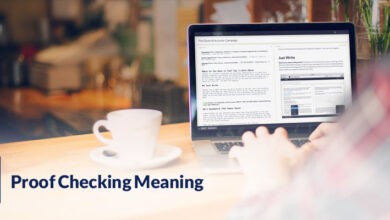What happens if you plagiarize in university?

Plagiarism is a common serious issue affecting students, researchers, writers, and professors.
For those involved in writing an article, book, or what else, it is important to avoid plagiarizing to keep his/herself safe from its potential consequences.
Students are asked to publish articles at universities, especially at graduate levels. They may look for the easiest way and end up copying text from previous resources, and as a result, they will go through some potential consequences.
In this article, we discuss what happens if you plagiarize in the university to inform you before using this unauthentic way to complete your projects.

What is Plagiarism & why is it wrong?
Plagiarism describes stealing keywords, phrases, phrases, ideas, or content structures created by someone else.
Some people view Plagiarism as simply copying someone else’s writing and using it in their work or having paid a writer as content for them.
However, Plagiarism encompasses more than just these activities. It occurs when a person paraphrases another text, changes words without changing their meaning, or combines words to form a cohesive text.
Whether done intentionally or accidentally, Plagiarism is a form of stealing someone’s work. While some individuals conduct research and study multiple books to gather valid information for creating an academic article, Plagiarism involves using someone else’s work to take credit that does not originally belong to you. This constitutes academic dishonesty and can lead to serious consequences.
Furthermore, plagiarizing deprives you of the opportunity to learn independently. Remember, things that come also tend to go easily.
To know what happens if you plagiarize at the university, follow the next section:

What negative effects does Plagiarism have in university?
The negative effects of Plagiarism can impact people not only personally but also professionally.
With the help of a plagiarism software detector, the content can be recognized whether it has plagiarism text or not.
Here are the common negative consequences of plagiarizing for those who are in the university:
· Damage to student reputation
One of the serious negative results of Plagiarism is ruining your credibility, leading to suspension or expulsion, falling grades, and academic probation, which can have a lasting impact on your academic standing.
Such charges can result in the student being deprived of continuing study. The universities measure Plagiarism and often have committees dedicated to ensuring students are academically competent.
· Losing scholarship
When students receive funds for research or studying and are detected for Plagiarism, they should consider the repercussion of Plagiarism. Losing scholarships is the other bad effect they can experience.
Students will only have an option if they pay for the project, university fee, or level of academic community.
· Damage to academic validity
The consequence of plagiarizing in university extends beyond the individual. It affects the academic community, resulting in a loss of academic credibility since Plagiarism is immediately reported in the academic world.
Publishing articles is the main part of the academic world, and you can only imagine an academic person with publishing.
If a person is accused of Plagiarism, it is more likely that person will not be able to pursue an academic career.
· Professional Consequences
Plagiarism can have a long-term impact on a student’s future career prospects. Employers that value honesty and ethics and a history of Plagiarism can raise doubts about a candidate’s credibility and ability to do original work.
As a result, a person may face issues once they want to find a decent job.
· Legal implications
Given that copyright law is serious and solid, legal implications are one of the negative effects of Plagiarism.
Considering this, only one can use another’s work with citations and giving references. The author can use others’ work without any issues by giving citations and references.
A legal consequence of Plagiarism can be a criminal offense such as a prison sentence.
After understating the potential negative effects of plagiarizing in university, let’s see how you can avoid committing plagiarizing in university.
How to avoid committing Plagiarism in university?
As you see, the negative effects of Plagiarism is not limited to personal issue, and it can impact your life from different aspects.
However, some helpful ways to prevent you from publishing plagiarism content in the academic area.
One of the handy ways that you can use online for free is plagiarism checker websites. Using these websites allows you to check your content before submitting your article to academic journals and make it correct.
Doing this will ensure you will not risk plagiarizing in university and its adverse effects.

The bottom line
Plagiarism has a far-reaching negative impact on individual students and university communities, damaging academic credibility, personal growth, and future opportunities.
We hope reading this article helps you to inform about what happens if you plagiarize in university.
Have you checked your content with any plagiarism detector website? If so, how was your experience of using a plagiarism detector website? Did you find it helpful?
We would love to hear from you in the comment section.

In case you possess any ideas, kindly leave your comment in the section provided below.Have you ever plagiarized, either by accident or intentionally?



